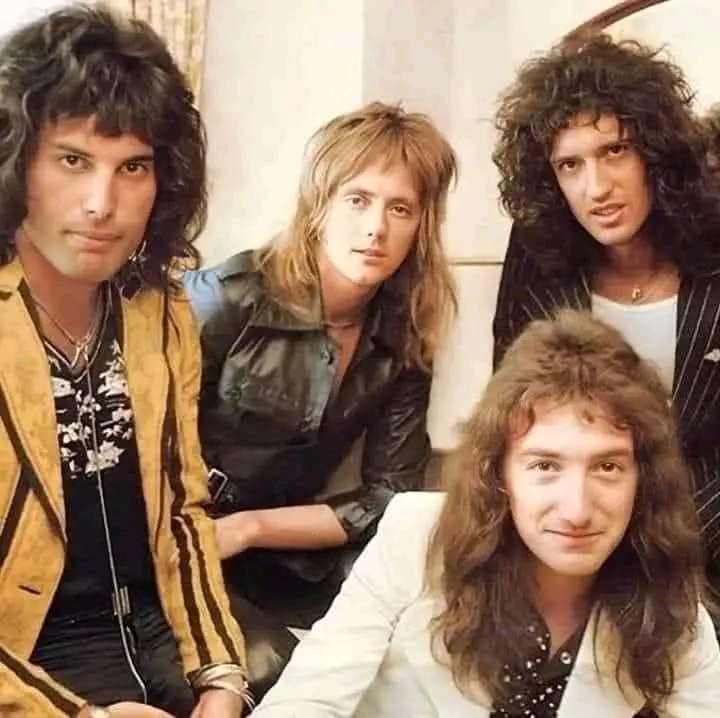“‘I Still Love You’: The Heartbreaking Brilliance of Freddie Mercury’s Final Gift—How ‘These Are The Days of Our Lives’ Became His Poetic Goodbye to the World”
On July 8, 1992, a song quietly returned to the spotlight in Japan—a delicate yet profound piece titled These Are The Days of Our Lives, paired with Queen’s eternal anthem, Bohemian Rhapsody. While the latter was a thunderous cry of operatic genius, the former offered something more intimate: a whisper from a fading light. Written by Roger Taylor, this reflective ballad became the emotional centerpiece of Queen’s final chapter with Freddie Mercury. It was not merely a song—it was a love letter, a eulogy, and a promise wrapped in melody.
Taylor penned the lyrics in a moment of solemn clarity. He later admitted the song arose during a time of deep reflection, knowing that Freddie was gravely ill. “I was sitting at home in a rather reflective mood,” he said. “I knew Freddie was ill. The song came from that slightly melancholic place, but I wanted an optimistic slant—those were the days, and these are the days of our lives.” His words captured a timeless truth: that each passing day, no matter how bittersweet, holds value. The song’s message was not about mourning the past but cherishing the present, especially in the face of uncertainty.
As with all songs from The Miracle onward, it was credited to the entire band—but its emotional fingerprint is unmistakably Roger’s. Yet it was Freddie Mercury who breathed unmatchable soul into the lyrics. In what would become one of his final studio performances, he sang with unshakable dignity and haunting vulnerability. His voice, though weathered by illness, retained its elegance, its grace. For Freddie, the studio remained his sanctuary, his safe place—a world of music and magic where illness had no dominion.
Brian May reflected on those sessions with deep admiration: “There was no drama, no tears. Freddie was incredibly strong and self-contained. He never asked for sympathy. He wanted business as usual, right until the end.” To those who witnessed him during this time, Freddie’s bravery wasn’t loud—it was quiet, persistent, and deeply moving. His laughter still filled the studio, even as time slipped through his fingers. He faced the inevitable not with despair, but with creative fire and regal pride.
Keyboardist Mike Moran, who spent many hours with Mercury in the studio, later remarked: “He could have vanished quietly, but he didn’t. He worked until he could work no more. That’s bravery.” It’s a sentiment that captures the very essence of the man. Freddie Mercury refused to disappear. He chose instead to leave us with one final performance, one final message.
And it came not just in song, but in one unforgettable moment on camera. In the video for These Are The Days of Our Lives, filmed in black and white to soften the appearance of his illness, Freddie stood, frail yet fierce. With every ounce of strength, he looked directly into the lens and whispered the words that would become his final message to fans around the world:
“I still love you.”
Those four words landed like a thunderclap wrapped in a whisper. They were not just a goodbye—they were a gift, an enduring reminder that love, presence, and resilience can outshine even death. It was a moment that cracked hearts open and, decades later, still brings tears to those who revisit it.
Freddie’s dear friend Anita Dobson recalled one of his most haunting declarations: “When I can’t sing anymore, darling, then I will die.” And true to his word, he kept singing—until his voice could no longer rise, until his strength finally surrendered, but not before leaving the world with something sacred.
In 1992, These Are The Days of Our Lives was awarded the Brit Award for British Single of the Year. But more than accolades, its legacy lives in the millions of hearts it continues to touch. The song is not just about Freddie Mercury—it is Freddie Mercury: fearless, tender, dignified, and full of love even in the darkest hour.
We still love you, Freddie. We always will.
